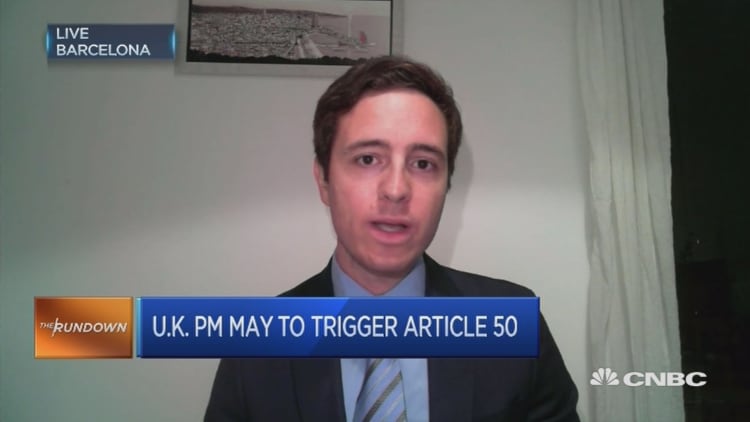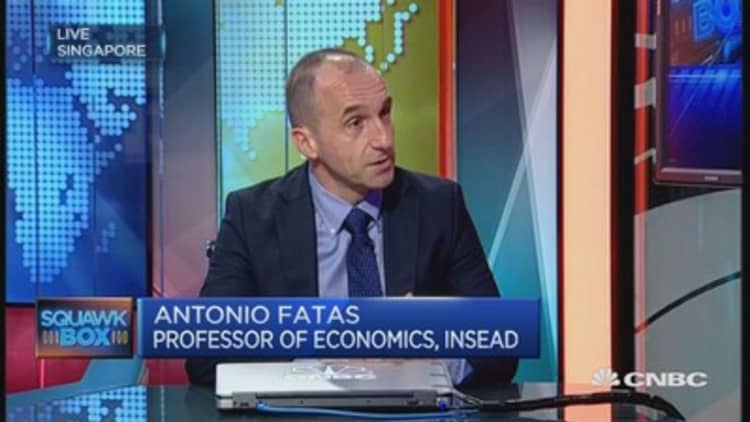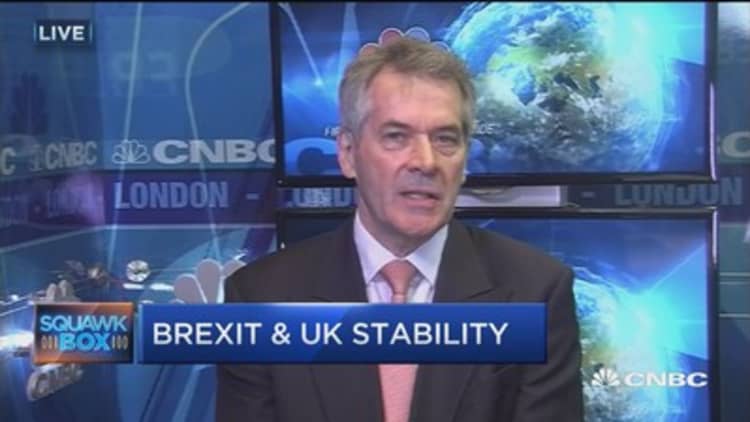


The European Union is expected to have the upper hand when it formally begins Brexit negotiations with British Prime Minister Theresa May as it look to send a message to euroskeptic members of the regional bloc.
Nine months after the historic Brexit referendum, May will notify the European Council on Wednesday that the U.K. will officially terminate its 44-year old membership with the E.U. The move paves the way for talks on two key sectors: terms of the divorce, which includes residential rights of both citizens and the U.K.'s financial obligations, as well as future economic relations.
The logistics behind the negotiations have already become a source of tension. The U.K. would like to discuss both the divorce and trade simultaneously whereas the E.U. would rather have sequential talks instead, explained Adriano Bosoni, Stratfor's senior Europe analyst.
While it's in the union's advantage to ink a deal, especially if it wants to maintains its trade surplus with the U.K., political factors could force the E.U. to adopt a tough stance.
"At a time when euroskepticism, nationalism and populism is on the rise in many European countries, governments will keep an eye on their domestic situation. They will want to send a message to voters and parties that Brexit is not a painless process," said Bosoni.
Indeed, a number of political parties in Europe advocate exiting the E.U., including France's National Front, whose candidate Marine Le Pen is one of the top two contenders for presidential elections. Italy's 5- Star Movement is another such faction, and recent opinion polls indicate it may emerge as the largest group in national elections due by early 2018.
"The Brexit process is important but there are greater threats for the continuity of the euro zone coming from France and Italy," noted Bosoni.
Indeed, the timing of Article 50 seems to be working against May.
"This is not the best time because we have elections in Europe," said Horst Geicke, chairman of the European Chamber of Commerce in Hong Kong. If PM May delayed triggering Article 50 by six months, that could have resulted in an easier start to negotiations, he explained.
"Europe now has to show unity and show that there is a price to pay (for leaving)."
The region's busy electoral timetable, with France and Germany heading to the polls over the next few months, means substantive negotiations will only commence in October, warned Oliver Salmon, lead economist at Oxford Economics.
The E.U.'s sheer size will also strengthen its bargaining power during deliberations.
"Whether its trade or regulations, size matters. The E.U. is seven times larger than the U.K. Indonesia today is bigger than the U.K. measured in purchasing power parity," said Antonio Fatas, economics professor at INSEAD, adding that the next two years of dialogue would be "technical" and "ugly."
On her part, PM May has limited carrots to offer in order to avoid the stick, he continued.
"The only power she has is coming up with a scenario favorable for both sides ... When we talk about power in the negotiations, I don't see that many arguments she can bring up."


